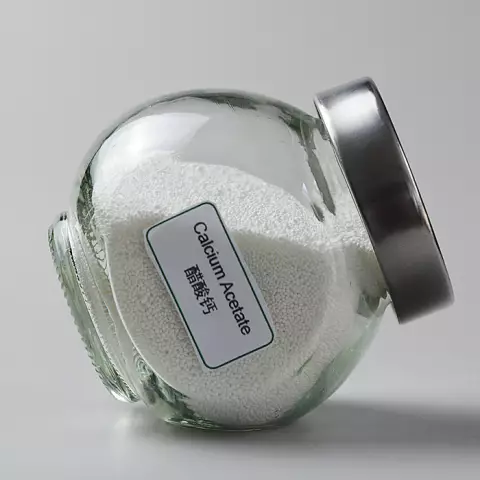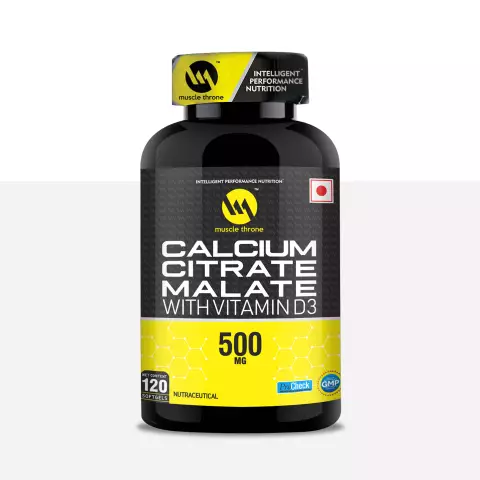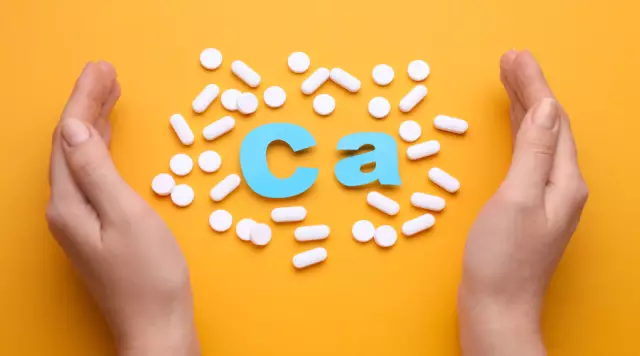- Author Rachel Wainwright wainwright@abchealthonline.com.
- Public 2023-12-15 07:39.
- Last modified 2025-11-02 20:14.
Calcium hopantenate
Calcium hopantenate: instructions for use and reviews
- 1. Release form and composition
- 2. Pharmacological properties
- 3. Indications for use
- 4. Contraindications
- 5. Method of application and dosage
- 6. Side effects
- 7. Overdose
- 8. Special instructions
- 9. Application during pregnancy and lactation
- 10. Use in childhood
- 11. In case of impaired renal function
- 12. Drug interactions
- 13. Analogs
- 14. Terms and conditions of storage
- 15. Terms of dispensing from pharmacies
- 16. Reviews
- 17. Price in pharmacies
Latin name: Calcium hopantenate
ATX code: N06BX
Active ingredient: hopantenic acid
Producer: Pharmstandard-Ufa Vitamin Plant, JSC (Russia)
Description and photo update: 2018-21-11
Prices in pharmacies: from 185 rubles.
Buy

Calcium hopantenate is a nootropic drug.
Release form and composition
Calcium hopantenate is available in the form of tablets: white, flat-cylindrical, with a dividing line and a chamfer (50 pcs. In polymer cans, 1 can in a cardboard box).
1 tablet contains:
- active substance: calcium hopantenate - 0.25 g or 0.5 g;
- auxiliary components: potato starch, basic magnesium carbonate, talc, calcium stearate.
Pharmacological properties
Pharmacodynamics
Calcium hopantenate is a drug with nootropic and anticonvulsant action, which is due to the effect of hopantenic acid directly on the GABA b -receptor-channel complex. A direct effect on receptors increases the resistance of the brain to the effects of toxic substances and hypoxia, stimulates anabolic processes in neurons. A moderate sedative effect is combined with a mild stimulating effect. Reduced motor excitability, increased mental and physical performance.
Taking the drug normalizes the content of GABA (gamma-aminobutyric acid) when ethanol is discontinued in patients with chronic alcohol intoxication. By inhibiting the acetylation reaction of novocaine and sulfonamides, it helps to prolong their action. It has a depressing effect on the pathologically increased gallbladder reflex and detrusor tone.
Pharmacokinetics
After oral administration, rapid absorption from the gastrointestinal tract occurs. The maximum concentration (C max) of calcium hopantenate in the blood is reached after 1 hour. The highest concentrations of the drug are determined in the wall of the stomach, liver, kidneys and skin. Overcomes the blood-brain barrier.
It is completely excreted unchanged within 48 hours. 67.5% is excreted through the kidneys, 28.5% of the dose taken through the intestines.
Indications for use
- cognitive impairment caused by organic damage to the brain, including the consequences of traumatic brain injury, neuroinfection;
- cerebrovascular insufficiency due to atherosclerotic changes in the vessels of the brain;
- schizophrenia with cerebral organic failure;
- extrapyramidal disorders, including Parkinson's disease, myoclonic epilepsy, hepatolenticular degeneration, Huntington's syndrome;
- epilepsy with retarded mental processes - in combination with anticonvulsants;
- neurogenic disorders of urination: pollakiuria, enuresis, urinary incontinence, urgency;
- psychoemotional overload, decreased mental and physical performance - to increase concentration and memorization;
- perinatal encephalopathy, developmental delay (motor, mental, speech, or their combination), varying degrees of mental retardation, cerebral palsy, hyperkinetic disorders (tics, attention deficit hyperactivity disorder), neurosis-like states, stuttering (predominantly clonic form) - in children over three years old.
Contraindications
- acute period of severe kidney disease;
- I trimester of pregnancy;
- age up to 3 years;
- individual intolerance to the components of the drug.
Instructions for use of Calcium hopantenate: method and dosage
The tablets are taken orally, preferably in the first half of the day, 15-30 minutes after meals.
Recommended dosage:
- epilepsy: adults - 0.5-1 g 3-4 times a day, children - 0.25-0.5 g 3-4 times a day, course duration - up to 180 days;
- hyperkinesis: adults - 1.5-3 g per day for 30-150 days, children - 0.25-0.5 g 3-6 times a day, course duration - 30-120 days;
- mental retardation, mental disability: children - 0.5 g 4-6 times a day, course duration - 90 days;
- delayed speech development in children: 0.5 g 3-4 times a day, course duration - 60-90 days;
- consequences of craniocerebral trauma and neuroinfections: 0.25 g 3-4 times a day;
- restoration of working capacity in asthenic conditions and increased loads: 0.25 g 3 times a day;
- treatment of extrapyramidal syndrome caused by taking antipsychotics: adults - 0.5-1 g 3 times a day, children - 0.25-0.5 g 3-4 times a day, course duration - 30-90 days;
- tics: adults - 1.5-3 g per day for 30-150 days, children - 0.25-0.5 g 3-6 times a day for 30-120 days;
- disorder of urination: adults - 0.5-1 g 2-3 times a day, children - 0.25-0.5 g 2-3 times a day.
The use of Calcium hopantenate is indicated as monotherapy and as part of complex treatment. Treatment should be carried out by increasing the dose for 7-12 days to the maximum dose. After taking the established dose for the required period, the drug is discontinued by gradually decreasing the dose over 7-8 days. After a 30-90 day break, the course of therapy can be resumed.
Side effects
Due to its low toxicity, the drug is well tolerated. Development of allergic reactions in the form of skin rashes, rhinitis, conjunctivitis is possible, which requires discontinuation of the drug. Undesirable effects associated with sleep disturbances, drowsiness, and noise in the head are usually short-term and allow the continuation of Calcium hopantenate intake.
Overdose
Symptoms: Worsening symptoms of adverse events.
Treatment: immediate gastric lavage, activated charcoal intake, symptomatic therapy.
special instructions
You cannot take pills without a doctor's recommendation!
In conditions of long-term treatment, the simultaneous use of Calcium hopantenate with other nootropic drugs or drugs that stimulate the central nervous system should not be allowed.
Application during pregnancy and lactation
The use of hopantenic acid in the first trimester of pregnancy is contraindicated.
Pediatric use
According to the instructions, Calcium hopantenate is indicated for children over three years of age for the treatment of perinatal encephalopathy, various forms of cerebral palsy, neurosis-like conditions, mental retardation of varying severity, hyperkinetic disorders (attention deficit hyperactivity disorder, tics), stuttering (predominantly clonic form), with delayed speech, mental, motor development, or a combination thereof. At an earlier age, the drug should be used in the form of a syrup.
The use of tablets in children under the age of three is contraindicated.
With impaired renal function
The use of the drug is contraindicated during an exacerbation of severe kidney disease.
Drug interactions
With the simultaneous use of Calcium hopantenate:
- glycine, etidronic acid enhance the action of hopantenic acid;
- barbiturates prolong their action;
- local anesthetics (procaine), anticonvulsant drugs, stimulants of the central nervous system enhance their effect;
- phenobarbital, carbamazepine, antipsychotics (antipsychotics) reduce the likelihood of developing their side effects.
Analogs
Analogues of Calcium hopantenat are: Pantogam, Gopantam, Pantocalcin, Calcium Hopantenat-Ros, Phezam, Piracesin, Carnicetin, Acefen, Bravinton.
Terms and conditions of storage
Keep out of the reach of children.
Store at temperatures up to 25 ° C, protected from moisture and light.
The shelf life is 3 years.
Terms of dispensing from pharmacies
Dispensed by prescription.
Reviews about Calcium hopantenate
Reviews of Calcium hopantenate are mostly positive. More often they are left by mothers whose children were prescribed the drug for various clinical indications, indicating a positive dynamics of therapy. In case of hyperactivity, the effect of the drug is manifested in a calmer behavior of the child, his ability to concentrate, an adequate response to requests and requests from parents. A decrease in psycho-emotional stress, an improvement in muscle tone, mental and speech development of the child are noted.
The advantages of the drug include a small list of contraindications and side effects. The neutral taste of the tablets does not cause resistance in children when they are taken.
In some cases, against the background of the use of the drug, the child may experience increased agitation.
Discontinuation of Calcium hopantenate can sometimes be accompanied by withdrawal symptoms in the form of weakness.
Price for Calcium hopantenate in pharmacies
The price of Calcium hopantenate for a package containing 50 tablets in a dose of 0.25 g can range from 251 rubles.
Calcium hopantenate: prices in online pharmacies
|
Drug name Price Pharmacy |
|
Calcium hopantenate 250 mg tablets 50 pcs. RUB 185 Buy |

Maria Kulkes Medical journalist About the author
Education: First Moscow State Medical University named after I. M. Sechenov, specialty "General Medicine".
Information about the drug is generalized, provided for informational purposes only and does not replace the official instructions. Self-medication is hazardous to health!






